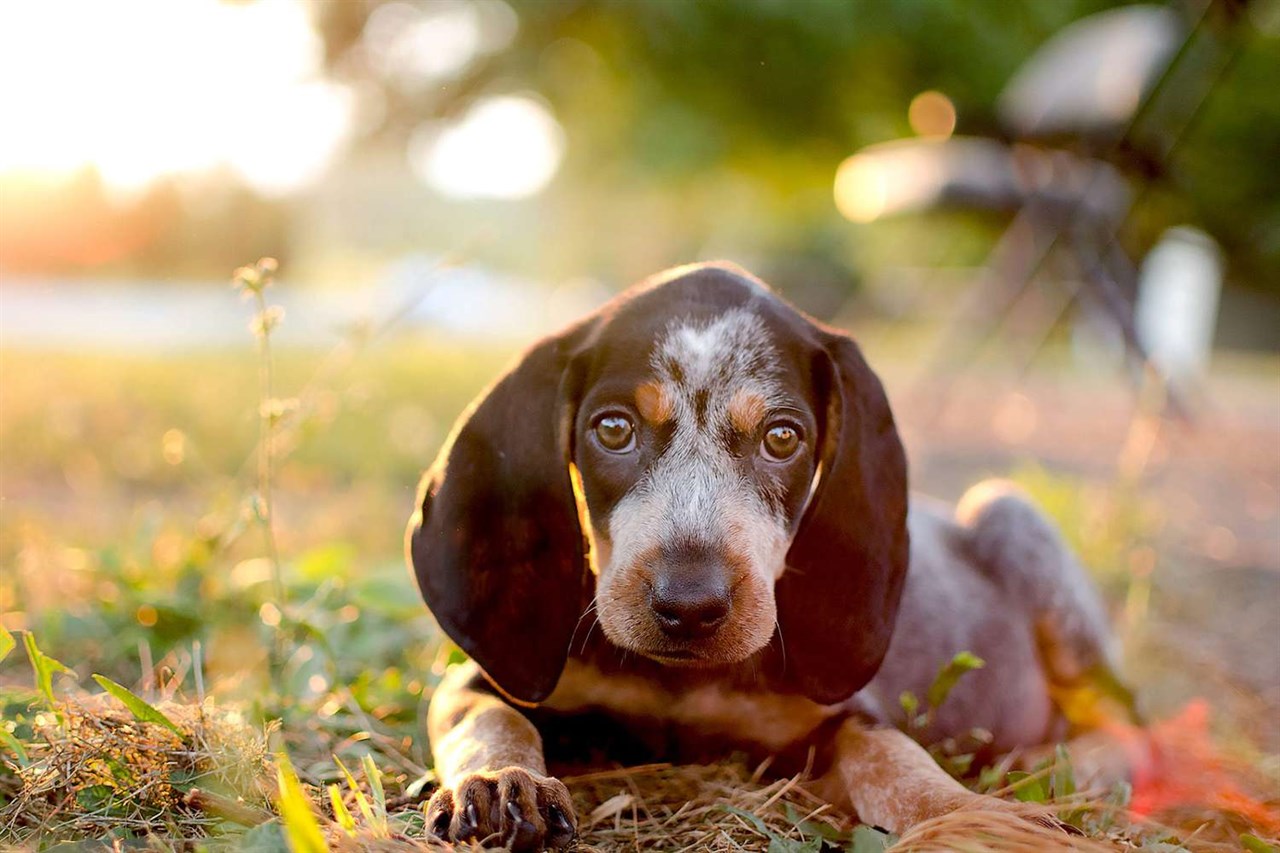Grooming and Maintenance Requirements of the Bluetick Coonhound

The Bluetick Coonhound has a short, low-maintenance coat, making them relatively easy to groom. However, proper care is essential to keep them clean and healthy. Here are the grooming and maintenance requirements for Bluetick Coonhounds.
Brushing
Bluetick Coonhounds have short, dense coats that shed moderately. Brushing them once a week with a bristle brush or rubber curry brush can help remove loose hair and distribute natural oils throughout the coat, promoting a healthy shine.
Bathing
These dogs do not require frequent baths, as excessive bathing can strip their coat of essential oils and lead to skin problems. Bathing should be done as needed, typically when they get particularly dirty or have a strong odour. Use a mild dog shampoo and ensure thorough rinsing.
Ears
Bluetick Coonhounds have long, drooping ears that can trap moisture and debris, making them prone to ear infections. Regularly check their ears for signs of redness, odour, or excess wax buildup. Clean them gently with a veterinarian-recommended ear cleaner to prevent issues.
Nails
Keep their nails trimmed to prevent overgrowth and discomfort. Long nails can cause difficulty walking and may lead to orthopaedic issues. Regular nail trimming is essential, and if you're unsure how to do it safely, consult a veterinarian or professional groomer.
Teeth
Dental care is crucial for Bluetick Coonhounds. Brush their teeth regularly to prevent plaque buildup and gum disease. Dental chews and toys can also help maintain their oral health.
Skin and Coat Health
Keep an eye on their skin for any signs of irritation, dryness, or lumps. Maintaining a healthy diet and ensuring they are well-hydrated can contribute to the overall condition of their skin and coat.
Exercise and Mental Stimulation
While not directly related to grooming, providing ample exercise and mental stimulation is essential for the overall well-being of Bluetick Coonhounds. They have high energy levels and thrive on outdoor activities, which can help keep them happy and healthy.
Do Bluetick Hounds Smell Bad?
Bluetick Coonhounds do not typically have a strong odour when properly groomed and cared for. Regular bathing, cleaning their ears, and maintaining their dental health can help prevent any unpleasant odours. However, like all dogs, they may develop a noticeable scent if they are not groomed or cleaned regularly, or if they have certain health issues. If you notice a persistent foul odour, it's advisable to consult with a veterinarian to rule out any underlying medical conditions.
Bluetick Coonhound puppies for sale
- Find Bluetick Coonhound puppies for sale in ACT
- Find Bluetick Coonhound puppies for sale in NSW
- Find Bluetick Coonhound puppies for sale in NT
- Find Bluetick Coonhound puppies for sale in QLD
- Find Bluetick Coonhound puppies for sale in SA
- Find Bluetick Coonhound puppies for sale in TAS
- Find Bluetick Coonhound puppies for sale in VIC
- Find Bluetick Coonhound puppies for sale in WA